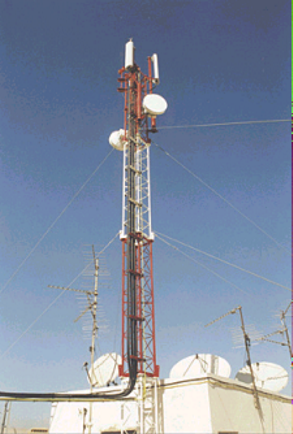base station (mobile communications) (BS)
The base station(BS) is the central station of a mobile communications system that manages a radio channel from a fixed location and supplies a radio cell. The base station provides the radio interface between the base station and the mobile station.
Depending on the mobile communications network and transmission power, the base station supplies a radio cell area that can be only a few 100 meters in metropolitan areas and up to 100 km in rural areas, depending on the topology.
The base station handles radio operations with the mobile subscribers and monitors the physical radio link. It essentially consists of a transceiver. It can receive and transmit radio signals. It also transmits network and status messages to the mobile stations, but has no switching function, only a supply function. Satellites establish the connection with terrestrial networks and mobile networks via base stations.
InGSM networks, the base station is called Base Station (BS) or Base Transceiver Station ( BTS). In UMTS, the base station (BS) is called NodeB( NB), in the SAE architecture of Long Term Evolution( LTE) Evolved NodeB( eNB) and in 5th generation mobile networks it is called Next Generation NodeB( gNB).

